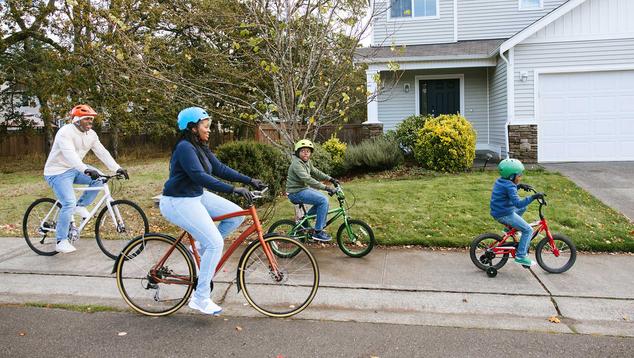WASHINGTON, D.C. -- The U.S. Centers for Disease Control and Prevention (CDC) and World Health Organization (WHO) recognize social connections -- relationships with other people -- as critical to physical health, mental health and longevity, and a large body of research has indicated that strong social connections can help reduce the negative impacts of adverse life experiences.
A recent study conducted by the Equity Research Action Coalition at the UNC Frank Porter Graham Child Development Institute and the Gallup Center on Black Voices found a possible link between social connections and Black parents’ ability to cope with racism and discrimination.
This study is part of a larger research program intended to understand the lived experience of Black families with young children as a critical data resource for researchers and practitioners working to promote positive development for Black youth in the U.S. Respondents included 587 Black adults; only those who reported being a parent or guardian to at least one child younger than 7 were considered eligible to participate.
Socially Connected Parents Report Greater Resilience to Racism and Discrimination
Strong social connections may play a role in buffering the negative impacts of experiences of racism and discrimination for Black parents of young children.
Approximately three-quarters of Black parents who report having strong social connections to their family, friends or community agree that they are able to maintain their hopes and dreams for the future even in the face of racism and discrimination.
Parents without strong social connections are substantially less likely to feel this way. The proportion of parents who agree that they are able to maintain their hopes and dreams even in the face of racism and discrimination plummets by 28 percentage points among those who do not confirm (agree or strongly agree) that their friends and family are a source of positive energy and by 33 points among those who do not agree that their friends and family support them during challenging times.
For Black parents, feeling connected to their community also makes a difference in whether they report the ability to maintain their hopes and dreams. Having a strong sense of belonging to their community is associated with a 12-point boost in optimism, while having regular interactions with neighbors is linked to a 20-point boost.
The data also show that parents’ ability to cope with racism and discrimination is associated with better daily emotional experiences. Parents who agree or strongly agree that they can maintain their hopes and dreams even in the face of racism and discrimination report experiencing less sadness, worry and loneliness during the previous day.
A majority of Black parents who do not feel that they are able to maintain their hopes and dreams for the future report experiencing worry “some” or “a lot” of the previous day (55%). This rate is 24 points lower (31%) among parents who do feel able to maintain their hopes and dreams.
Parents who say they are able to maintain their hopes and dreams for the future are also about half as likely to report experiencing sadness (20% vs. 38%) and 38% less likely to experience loneliness (22% vs. 36%).
Social Connections Among Black Families With Young Children
Among Black families with young children, most parents report having strong connections with family and friends. Sixty-two percent say their family and friends give them positive energy every day, and 68% agree or strongly agree that their friends and family support them in difficult times. That leaves about three in 10 lacking both kinds of strong attachments.
Over half of parents report that they say hello to neighbors regularly -- 58% agree or strongly agree they do this. However, only about a third feel a strong sense of belonging to their community, with 37% agreeing or strongly agreeing.
Implications
As critical sources of help and happiness in day-to-day life, social connections are important resources for families, and perhaps especially for families with young children. Raising young children can be a challenging time in life for parents, during which they may experience a greater need for emotional or tangible support. Yet, at the same time, busy schedules and parenting demands can make it hard to find the time or energy to connect with others.
A majority of parents in Black families are able to maintain strong social connections while raising young children, and these connections appear to have unique benefits as sources of resilience in overcoming the effects of discrimination and mistreatment.
Children in these Black families may also benefit from their parents’ resilience to racial challenges, such as by having explicit conversations about confronting situations, by watching their parents model optimal coping strategies or by having more positive interactions with their parents who experience fewer daily negative emotions.
To stay up to date with the latest Gallup News insights and updates, follow us on X @Gallup.
Subscribe to receive email updates on Gallup's latest insights and historical findings on the experiences of Black Americans. Access the latest from the Gallup Center on Black Voices.




